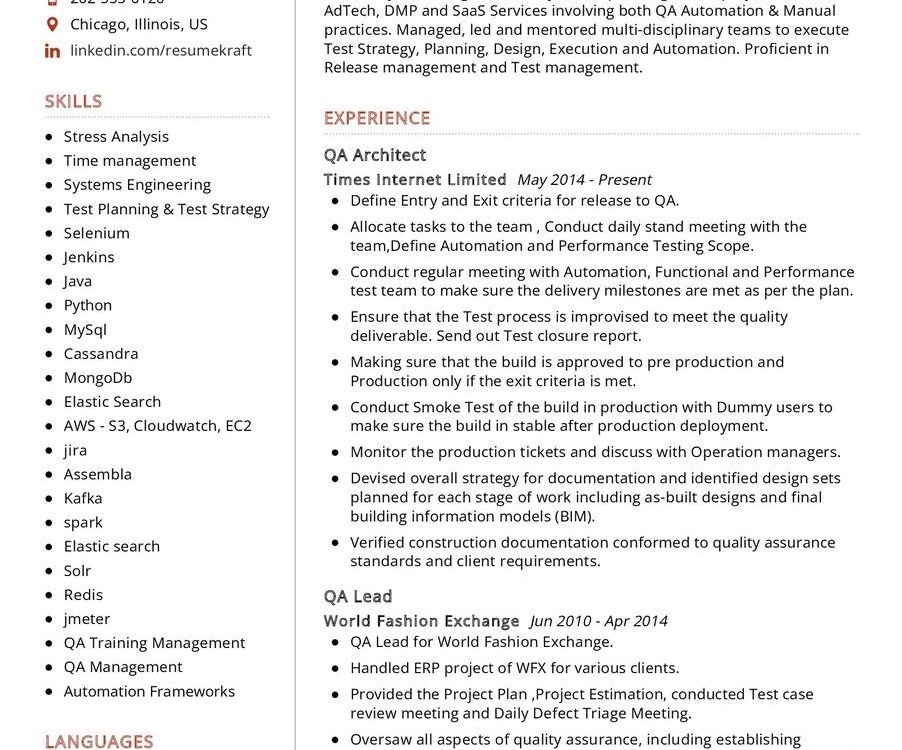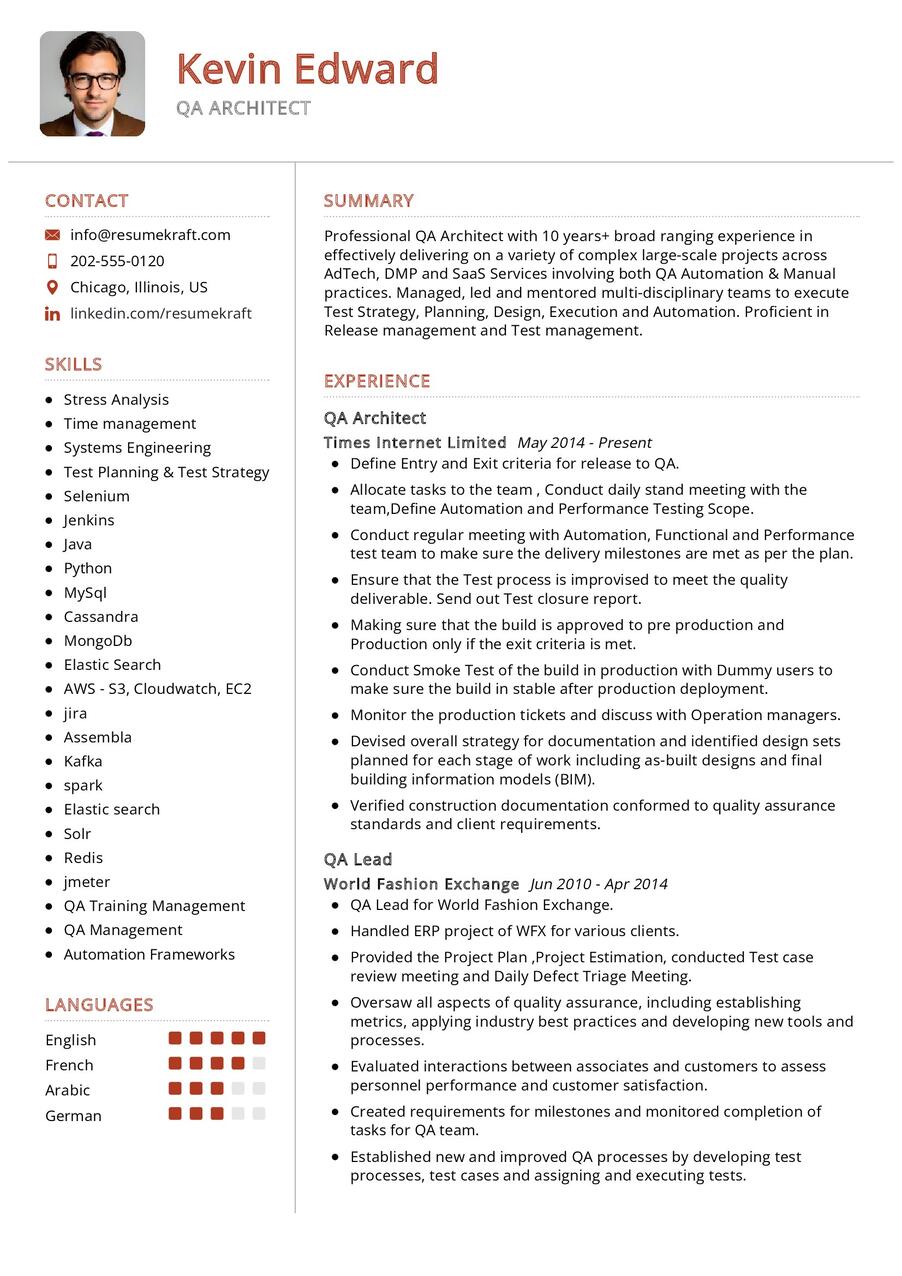Understanding the Role of a QA Architect
In the rapidly evolving landscape of software development, the role of a QA Architect has emerged as a critical component in ensuring the quality and integrity of software products. This multifaceted position blends technical expertise with strategic planning, guiding the quality assurance team towards achieving excellence. Let’s delve deeper into the intricacies of the role of a QA Architect and the indispensable value they bring to the software development process.
Job Requirements for a QA Architect
Embarking on the journey to become a QA Architect demands meeting a set of specific criteria, navigating through technical challenges while honing leadership and strategic skills. Here are the essential prerequisites required to excel in the role of a QA Architect:
- A Bachelor’s or Master’s degree in Computer Science, Software Engineering, or a related field, showcasing a strong foundation in software development.
- Extensive knowledge of software testing methodologies and quality assurance processes, with a focus on both manual and automated testing.
- Demonstrable experience in designing and implementing comprehensive test strategies, with a track record of successful test execution and result analysis.
- Leadership and managerial skills, acquired through experiences and potentially bolstered by certifications or specialized training programs.
- Proficiency in programming languages commonly used in software development, such as Java, Python, or C++, essential for designing and executing complex test scenarios.
- Ability to collaborate effectively with cross-functional teams, including developers, project managers, and stakeholders, to ensure seamless integration of quality assurance processes throughout the development lifecycle.
Obtaining additional certifications related to software testing, quality assurance, and project management can significantly enhance your profile and marketability in the field.
Responsibilities of a QA Architect
The role of a QA Architect encompasses a range of critical responsibilities, each contributing to the overall success and quality of software products. Here’s an overview of the key responsibilities defining this pivotal role:
- Designing and implementing comprehensive test plans and strategies, aligning them with the overall software development objectives and business goals.
- Leading and managing the quality assurance team, providing guidance and support in executing various testing activities and ensuring adherence to best practices.
- Collaborating with the development team to integrate testing processes seamlessly into the software development lifecycle, promoting a culture of continuous testing and quality improvement.
- Identifying and implementing appropriate testing tools and technologies, optimizing the testing process and enhancing overall efficiency.
- Conducting regular quality assessments and audits to identify areas for improvement, and implementing necessary measures to enhance the overall quality of software products.
- Providing timely and accurate reports to stakeholders and management, highlighting key quality metrics and suggesting improvements or corrective actions when necessary.
- Staying updated with the latest trends and advancements in the field of software testing and quality assurance, integrating relevant practices and technologies into the testing process.
Each responsibility represents a crucial step in ensuring the delivery of high-quality, reliable software products to end-users and stakeholders.
Writing Tips for an Impressive QA Architect CV
When crafting your CV as a QA Architect, it’s essential to highlight your unique skills and experiences to stand out in a competitive job market. Consider the following tips to create an effective CV that captures your expertise and showcases your suitability for the role:
- Emphasize your leadership experience, showcasing instances where you have successfully led teams to achieve quality objectives and project milestones.
- Detail specific test strategies or methodologies you have implemented, highlighting their impact on improving software quality and development efficiency.
- Incorporate quantifiable metrics to demonstrate the success of your testing efforts, providing tangible evidence of your contributions to project outcomes.
- List relevant certifications and training programs, demonstrating your commitment to continuous learning and professional development in the field of software testing and quality assurance.
- Customize your CV for each application, aligning your skills and experiences with the specific requirements and expectations outlined in the job description.
Each tip serves as a guide to help you create a compelling and tailored CV that effectively communicates your expertise and suitability for the role of a QA Architect.
Key Skills for a Successful QA Architect
Your skill set as a QA Architect comprises a diverse array of technical and interpersonal abilities essential for ensuring the quality and reliability of software products. Let’s outline the key skills that are critical for excelling in the role of a QA Architect:
Technical Skills:
- Comprehensive understanding of software testing methodologies and best practices.
- Proficiency in utilizing automated testing tools and frameworks for efficient and effective test execution.
- Expertise in programming languages commonly used in software development, facilitating the creation of complex test scenarios.
- Familiarity with various software development methodologies, such as Agile or DevOps, ensuring the seamless integration of testing processes into the development lifecycle.
- Knowledge of software development lifecycle (SDLC) processes and quality assurance standards, ensuring compliance with industry best practices and regulations.
Interpersonal Skills:
- Strong leadership and team management abilities, essential for guiding and motivating the quality assurance team.
- Effective communication and collaboration skills, facilitating seamless interaction with cross-functional teams and stakeholders.
- Analytical and problem-solving capabilities, enabling the identification and resolution of complex software quality issues.
- Attention to detail and meticulousness, ensuring the thoroughness and accuracy of testing processes and results.
- Adaptability and resilience in the face of evolving project requirements and dynamic work environments.
Each skill represents a crucial element contributing to the successful delivery of high-quality software products and the effective management of the quality assurance process.
Avoiding Common Mistakes in Your QA Architect CV
When crafting your CV for the role of a QA Architect, it is essential to steer clear of common pitfalls that can hinder your chances of securing your desired position. Here are some of the most common mistakes to avoid:
- Using generic language and clichés that fail to highlight your unique skills and experiences as a QA Architect.
- Providing a list of job responsibilities without emphasizing your specific achievements and contributions to the success of projects and software products.
- Underestimating the importance of a cover letter, which serves as an opportunity to personalize your application and express your passion for the role.
- Overloading your CV with technical jargon that may be difficult for non-technical readers to understand, potentially obscuring your true value as a candidate.
- Neglecting to proofread your CV thoroughly, which can leave a negative impression and diminish your credibility as a detail-oriented professional.
Avoiding these common mistakes can help you create a well-crafted CV that effectively showcases your unique qualifications and experiences as a QA Architect.
Key Takeaways for Crafting an Impressive QA Architect CV
As you work on creating your CV for the role of a QA Architect, keep these key points in mind to ensure that your application stands out to potential employers:
- Highlight your leadership capabilities and successful team management experiences to demonstrate your ability to lead and guide the quality assurance team effectively.
- Emphasize your technical proficiency in software testing methodologies, automated testing tools, and programming languages commonly used in software development.
- Showcase your strategic approach to implementing comprehensive test plans and methodologies, emphasizing your role in ensuring the overall quality and integrity of software products.
- Incorporate a section highlighting your commitment to continuous learning and professional development through relevant certifications and training programs in the field of software testing and quality assurance.
Finally, feel free to utilize resources like AI CV Builder, CV Design, CV Samples, CV Examples, CV Skills, CV Help, CV Synonyms, and Job Responsibilities to create a standout application and prepare for the [QA Architect job interview](https://resumekraft.com/interview-questions/).


